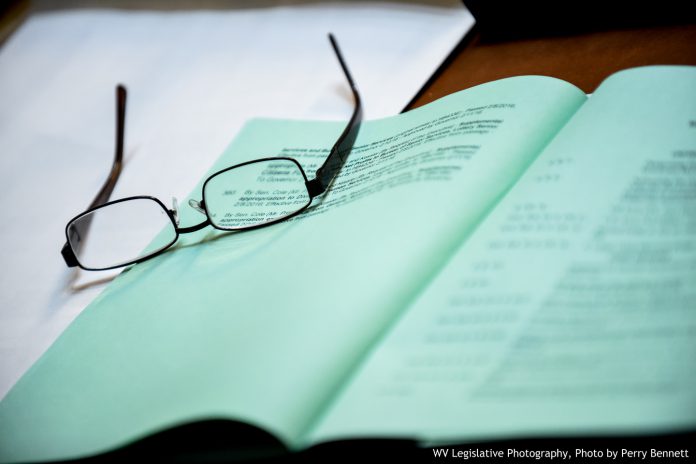On January 11, the Legislature returned to the Capitol City to begin the 60-day, 2nd Regular Session of the 80th Legislature.
After convening at noon to adopt procedural resolutions, both the House and Senate recessed until 7 p.m. to hear the Governor’s State of the State Address in the House Chamber. Prior to the presentation, the Governor submitted to both the Senate President and Speaker of the House his proposed budget.
The $4.5 billion budget for the state’s fiscal year, that begins July 1, is about $134 million more than last year’s but remains in the black as many other states in the nation continue to see their budgets fall into the red.
This year’s proposed budget contains $84 million in tax relief to West Virginians.
The food tax which is being reduced by one cent on January 1 and another cent in July will provide $54 million in relief directly to West Virginia consumers.
Businesses will also see some tax relief with the lowering of the state’s business franchise and corporate net income tax rates by $30 million.
The budget also contains no new taxes and proposes a minimal growth of government for next year.
The biggest growth in spending for next year will be going toward Medicaid. The budget would devote an additional $111 million to Medicaid to ensure there are no issues in funding the program.
Aside from Medicaid, the only other substantial increase in the budget is about $32 million in additional funding for social service programs within the state’s Department of Health and Human Resources.
A number of topics mentioned for Legislative review included enhancements in mine safety, preventative measures regarding substance abuse, heightened education reform, and a ban on texting while driving.
The Legislature plans to tackle the state’s Other Post Employment Benefits (OPEB) liability, which is one of the worst in the nation. Last month, the Public Insurance Agency (PEIA) approved a policy that reduces the state’s commitment to the liability by half. The Legislature must now find other funding sources which will enable it to pay down the state’s part, which is $5 billion.
Both the House and Senate Finance Committees have begun budget hearings with various state agencies. Budget hearings will take place during the first half of the regular session. Agency spokespersons address the Finance Committee membership to explain the need to continue or expand existing essential services; to report the financial requirements for programs; to secure the availability of cash to meet the existing level of expenses; to report the risks and responsibilities which may or may not exist; and, to respond to other inquiries sought by lawmakers.
Upon the conclusion of the hearings, legislators will put together an agreed upon budget for review by the full membership.
Schedules for the Budget hearings can be found on the Legislature’s website at: www.wvlegislature.gov
Legislative proceedings in both the House and Senate chambers and committee rooms will be streaming live throughout the regular session. Those interested in listening in on the events of the session can listen to “Legislature Live” at: www.wvlegislature.gov/live.cfm

